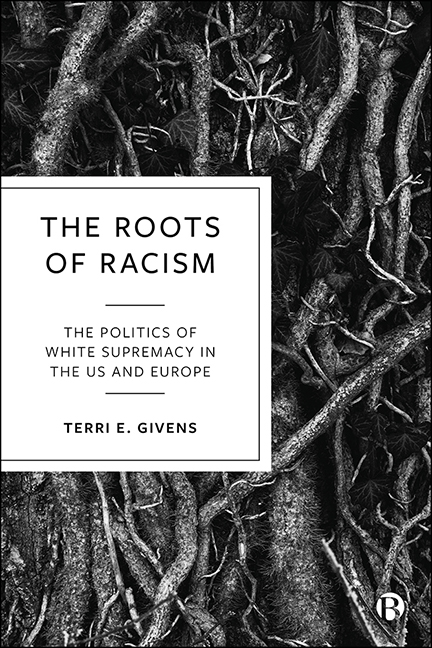Book contents
- Frontmatter
- Dedication
- Contents
- Preface
- 1 Introduction: Structural Racism is the Problem of the 21st Century
- 2 Political Science, International Relations, and the Normalization of White Supremacy
- 3 The Social and Geographical Construction of Race: A Transatlantic History
- 4 Ties that Bind: Slavery and Colonialism
- 5 Post-War Transitions: The Conflation of Immigration and Race
- 6 Immigration, Race, and Citizenship
- 7 From the Civil Rights Movement to Black Lives Matter
- 8 Party Politics, the Radical Right, and Race in the 21st Century
- 9 Elections, Protest, and Insurrection
- 10 Conclusion: Finding a Path Forward
- References
- Index
4 - Ties that Bind: Slavery and Colonialism
Published online by Cambridge University Press: 15 September 2022
- Frontmatter
- Dedication
- Contents
- Preface
- 1 Introduction: Structural Racism is the Problem of the 21st Century
- 2 Political Science, International Relations, and the Normalization of White Supremacy
- 3 The Social and Geographical Construction of Race: A Transatlantic History
- 4 Ties that Bind: Slavery and Colonialism
- 5 Post-War Transitions: The Conflation of Immigration and Race
- 6 Immigration, Race, and Citizenship
- 7 From the Civil Rights Movement to Black Lives Matter
- 8 Party Politics, the Radical Right, and Race in the 21st Century
- 9 Elections, Protest, and Insurrection
- 10 Conclusion: Finding a Path Forward
- References
- Index
Summary
I have traced the intellectual development of ideas about race in the previous chapter, but along with the ideas came the actions. Defining Africans as sub-human was necessary to legitimate the slave trade. Colonialism was based on similar ideas but added to it was the idea that the subjugated peoples were barbarians that needed to be taught how to be civilized. Underlying those “ideals” were the need for land, power, raw materials, and labor. The original sin of slavery is the beginning point for the roots of racism and the connections that have been built across the Atlantic Ocean since the 15th century. European explorers would begin the trade that would ultimately define a new nation and bind the two sides of the Atlantic in a trade that would destroy lives and souls in Africa, Europe, and the Americas.
Race relations today reflect the ongoing impact of the mass enslavement of millions of Africans, not only in the US, but in the Caribbean and Latin America. The brutality of the slave trade is clearly described in much of the historical literature, but it becomes clearer when one visits the National Museum of African American History and Culture (NMAAHC) in Washington, DC. Leg irons and other implements, pieces of a slave ship, and historical artefacts bring home the cruelty, confinement, and death that met the slaves who survived the middle passage and made it to America.
Colonialism (and imperialism) were part of the driving force behind the slave trade. In order to understand the transatlantic connections between what would become the US and those in Europe who sought their fortune through trade, it is important to understand the linkages between slavery and colonialism. Slavery would lead to a large population of people of African descent in North and South America, while colonialism would eventually lead to the migration of many of the formerly colonized to the lands where they could speak the language but were mainly wanted for manual labor. This connection between forced migration and the labor migration that followed World War II is an important component of the roots of racism in the US and Europe.
- Type
- Chapter
- Information
- The Roots of RacismThe Politics of White Supremacy in the US and Europe, pp. 47 - 61Publisher: Bristol University PressPrint publication year: 2022



